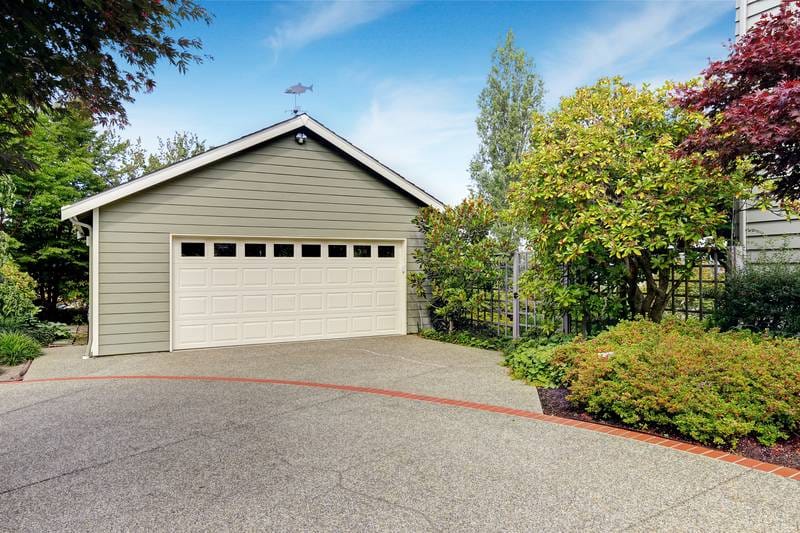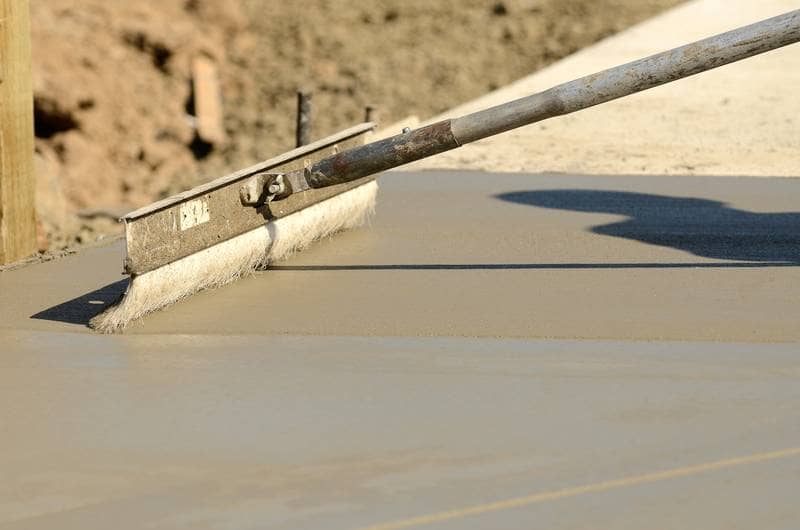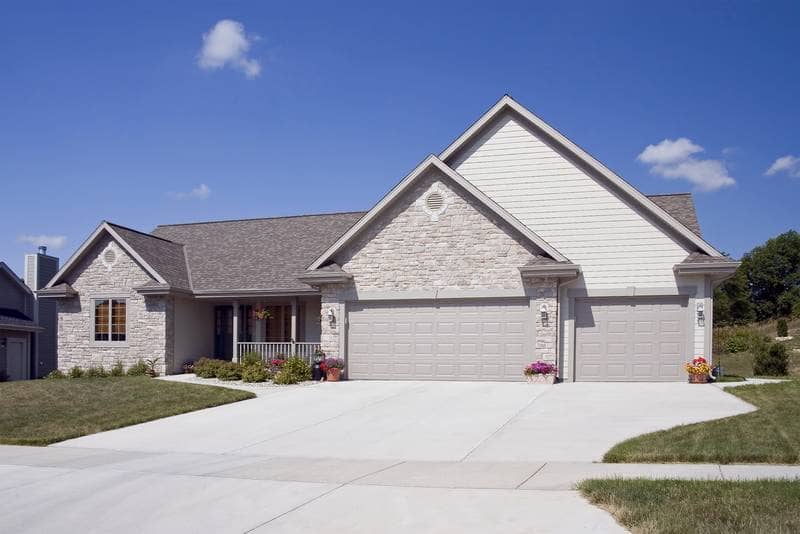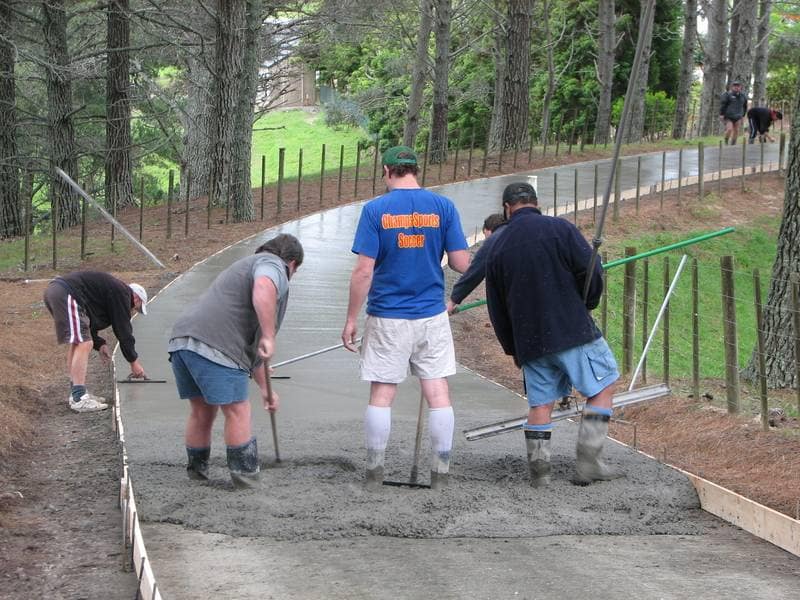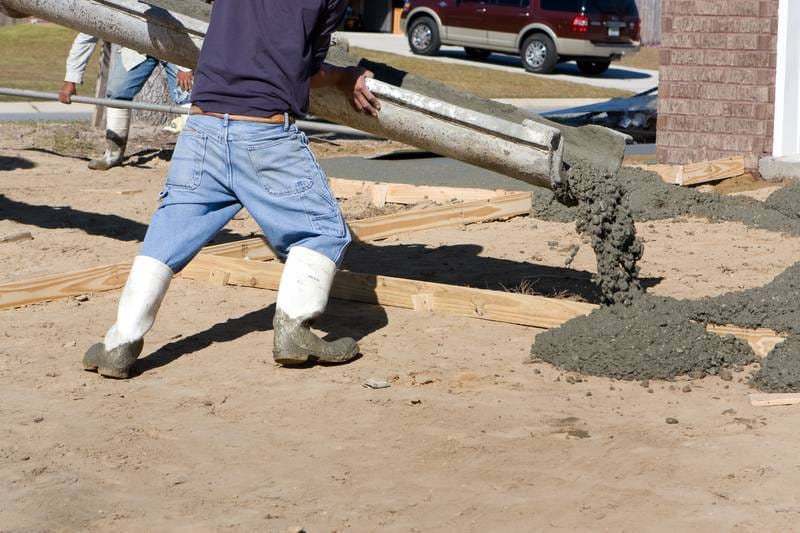Concrete driveways are a popular choice for many homeowners. Not only are they durable and long-lasting, but they’re also relatively low maintenance. However, there are pros and cons to consider before deciding to install a concrete driveway. This article will discuss the advantages and disadvantages of having a concrete driveway so that homeowners can decide what type of driveway is best for them.
Cost
The cost of a concrete driveway is one of the major pros and cons. Concrete driveways generally cost more per square foot than asphalt. However, concrete driveways last longer, so you don’t have to worry about replacing them as often. On the other hand, if you need to repair or replace sections of the driveway, it can be more expensive than asphalt. Additionally, concrete requires more initial labor and materials for installation.
Overall, a concrete driveway may be a more cost-effective option regarding long-term maintenance and replacement costs. However, there are additional upfront expenses that should be taken into account when choosing which material to use for your driveway.
Durability
When it comes to cost, concrete driveways can be an expensive option. Concrete is generally more costly than other materials, such as asphalt or gravel. However, the upfront cost of a concrete driveway may be offset by its durability over time. Concrete driveways are incredibly strong and can last for decades with minimal maintenance compared to other materials. Plus, the added expense of sealing, which is necessary for other driveway materials like asphalt, may not be necessary for a concrete driveway. Furthermore, because of its strength and long-lasting performance, a concrete driveway will likely increase the value of your home should you ever decide to sell it. As such, it’s an investment that could pay off in the long run.
On the negative side, installation costs for a concrete driveway can be significantly higher than those associated with other options, and repair costs tend to be higher due to the labor-intensive process involved in fixing any cracks or damage that may occur over time. Additionally, while sealing isn’t always required for maintaining a concrete driveway’s longevity and appearance, it may still need to be done depending on your climate and weather conditions. But, overall, many advantages come with choosing a concrete driveway that makes up for its upfront cost.
Maintenance
Maintaining a concrete driveway is relatively easy and cost-efficient. The most important thing to do is keep it clean, mostly by sweeping up debris and washing away dirt or grime with a hose. Pressure washing is also an effective way to keep the surface looking new. Additionally, fill in minor cracks with concrete crack filler, which will prevent further concrete deterioration over time.
However, concrete driveways are susceptible to staining from oil leaks and other liquids. If such stains do occur, they can be difficult to remove without professional assistance. In addition, if a large crack develops in the concrete, repair may also require expensive professional help. Therefore, homeowners need to take good care of their driveways so that costly repairs don’t become necessary down the line.
Design
Maintenance of a concrete driveway is relatively low, making it a popular choice for homeowners. It does not need to be resealed every few years like asphalt and is not likely to be damaged by extreme weather or temperature changes. Although concrete driveways can crack, they can often be repaired with epoxy.
When it comes to design, concrete offers plenty of options. You can choose from various colors, textures, and patterns to create the look you want for your home. Stamped concrete lets you get creative and mimic the look of wood, brick, or stone without the extra cost and labor associated with those materials. Additionally, exposed aggregate provides another option that adds texture and interest while still being easy to maintain. Ultimately, the design potential offered by concrete makes it an attractive option for those who want a unique driveway.
Environmental Impact
When it comes to driveways, one of the most popular options is concrete. But before you choose this material for your driveway, it’s important to consider its environmental impact. On the one hand, concrete can have a few advantages on the environment. For instance, it doesn’t require much energy to install, and it can last for decades with proper maintenance. On the other hand, there are some drawbacks as well. For example, cement production is responsible for nearly 8% of global carbon dioxide emissions every year. Concrete recycling has become more popular and available in recent years.
When considering an environmentally friendly driveway option, concrete should be weighed against other materials such as asphalt or gravel. While concrete may have a few benefits over these materials in terms of durability and ease of installation, its environmental impact could outweigh any potential advantages depending on your specific needs and situation.
Frequently Asked Questions
How Long Does It Take To Install A Concrete Driveway?
Installing a concrete driveway takes around 3-4 days, depending on the size and condition of your old driveway. The installation process includes removing any existing materials, grading and preparing the surface, laying down gravel for drainage, installing the forms for the concrete, pouring and finishing the concrete, and finally, sealing it. A well-installed concrete driveway can last up to 25 years or more if done correctly with quality materials.
How Much Does A Concrete Driveway Cost Compared To Other Driveway Materials?
Installing a concrete driveway is typically more expensive than installing other materials, such as asphalt or gravel. The exact cost of a concrete driveway will depend on the size of the project and location, but most homeowners can expect to pay anywhere from $3 to $15 per square foot. Other materials may be cheaper upfront but generally require more frequent maintenance and repairs over time.
Are Concrete Driveways Slippery When Wet?
Concerning concrete driveways, one of the main concerns is whether or not they are slippery when wet. Unfortunately, the answer is that concrete can become quite slippery when wet, so it’s important to take precautions such as adding a textured surface or sealer to reduce this risk. However, with proper care and maintenance, concrete driveways can be made safer even in areas with higher rainfall.
How Do You Seal A Concrete Driveway?
Sealing a concrete driveway is a straightforward process that helps to protect the driveway from water damage, staining, and other wear and tear. First, you’ll want to clean the surface of your driveway thoroughly using a pressure washer or scrub brush. Once the surface is dry, apply a sealant with either an acrylic-resin-based sealer or a penetrating sealer. Next, cover the entire surface evenly and let it dry before walking on it. Finally, you can apply a second sealant layer if desired for extra protection.
Does A Concrete Driveway Require Any Special Foundation?
When installing a concrete driveway, it is important to consider the foundation requirements. Generally, a concrete slab should be installed on a well-compacted gravel base with a layer of sand over the top. Additionally, some driveway installations may require heavy equipment to level the surface and provide adequate compaction. Additional engineering or reinforcement may be necessary for more challenging sites, such as steep slopes or unstable soils.
Conclusion
Concrete driveways have their pros and cons. Plus, they’re relatively inexpensive to install and require minimal maintenance. They also last longer than other driveway materials, making them a great long-term investment. On the downside, they can be slippery when wet and require a special foundation to ensure that they don’t crack or settle over time. Ultimately, it’s up to you to decide whether or not a concrete driveway is right for your home. Weigh out the pros and cons carefully before contacting a concrete driveway contractor – you won’t regret it!

